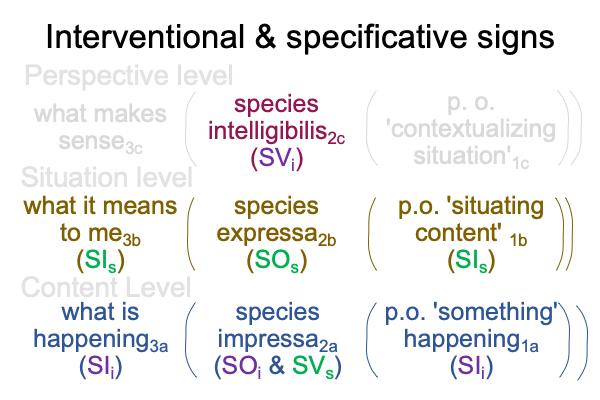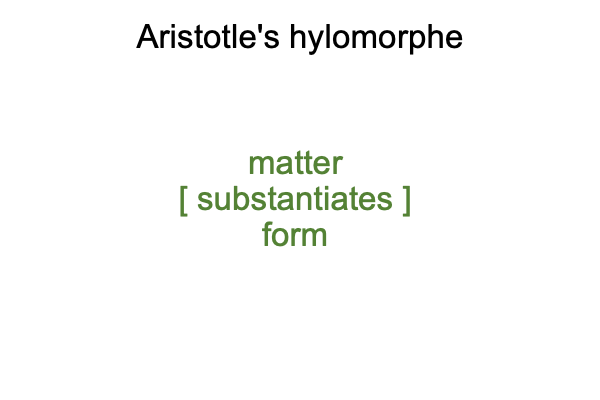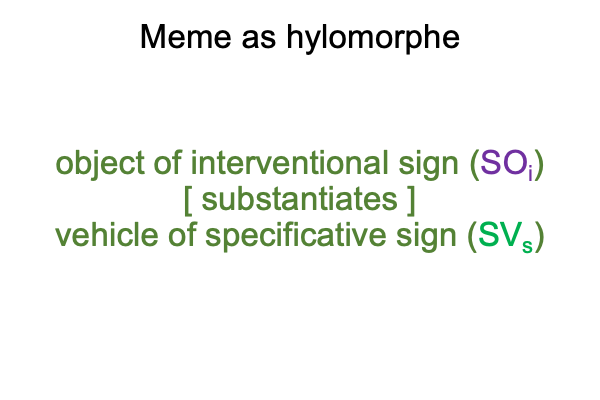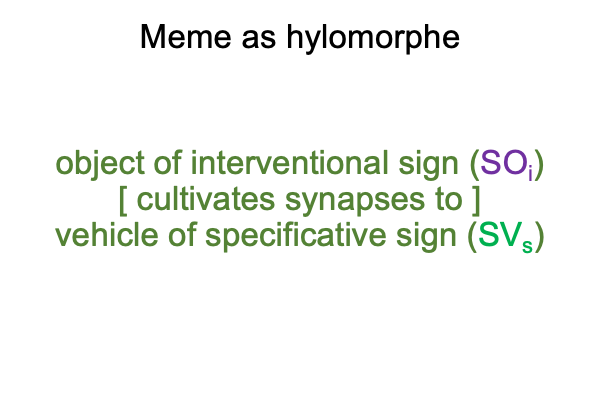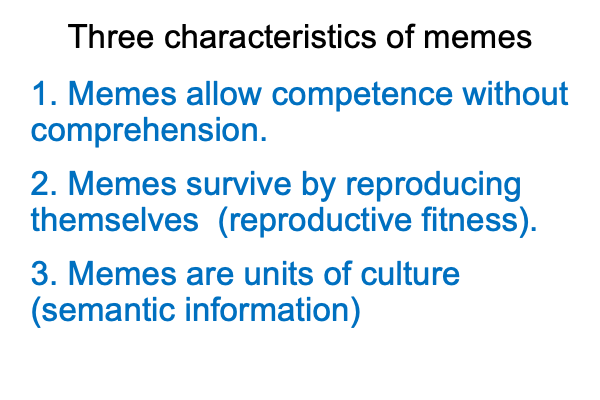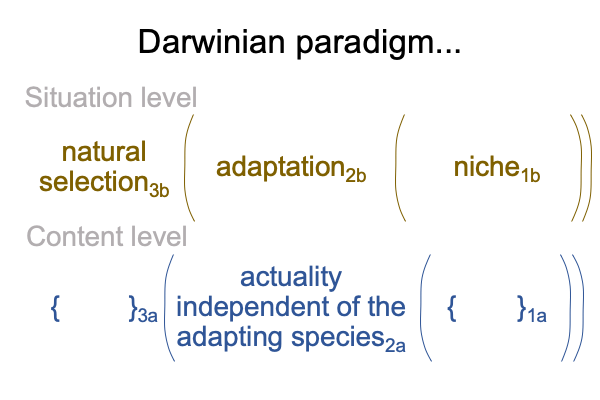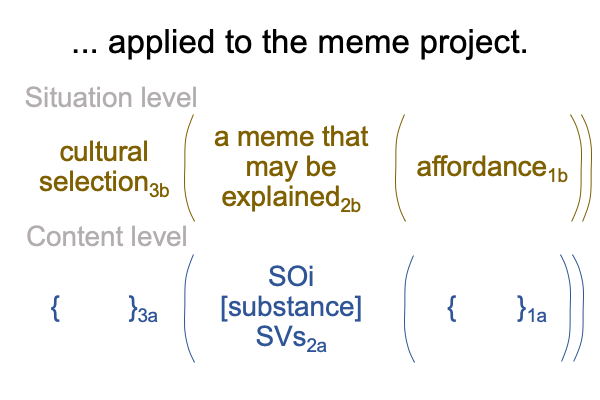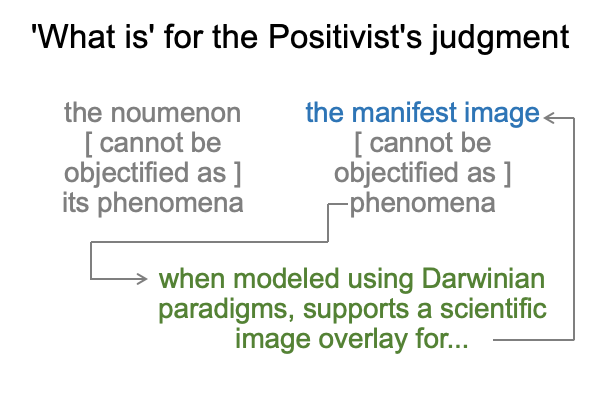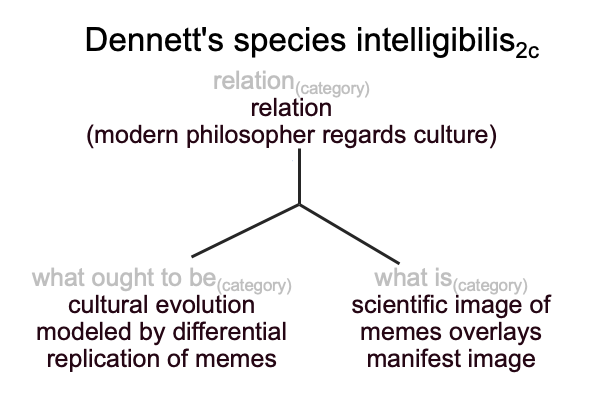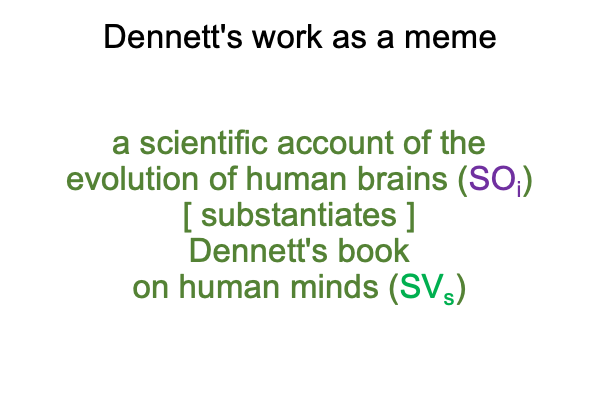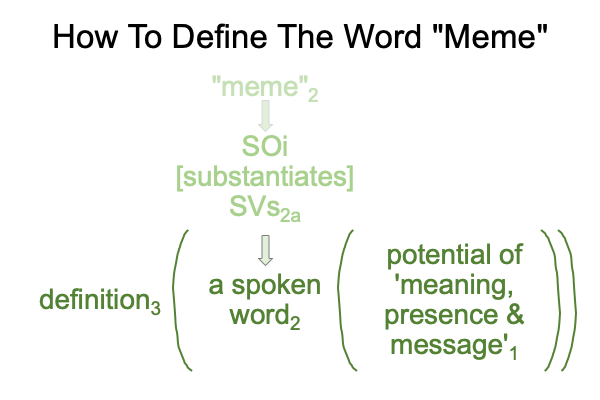What Is A Meme? (F of G, Part 14 of 20)
0124 A meme involves an interventional sign-relation, whose sign-vehicle3c (SVi) fills in the slot for species impressa2a(SOi) while providing clues to a relevant content-level normal context3a and potential1a (SIi).
A meme also involves a specifying sign-relation, where a content-level species impressa2a (SVs) specifies a species expressa2b (SOs) within a situation-level normal context3b and potential1b (SIs).
0125 Here is a general picture of the specifying sign.
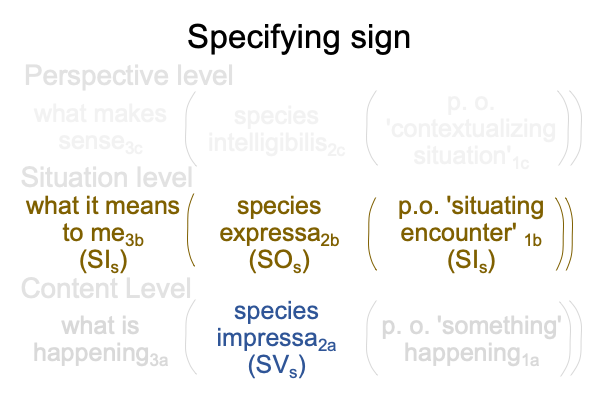
0126 Obviously, the interventional sign-object occupies the same content-level actuality2a as the specifying sign-vehicle.
The adaptiveness of the subsequent specifying sign weighs (takes into account) the initial bias (perhaps, affordance) provided by the interventional sign’s interpretant.
0127 In chapter nine, Dennett considers spoken words as paradigms of memes.
What about the gesture-words of hand talk… er… “sign language”?
Surely, these are even more paradigmatic because the gesture-word images and points to its referent.
0128 What if language evolves in the milieu of hand talk?
Here is a scenario to think about.
A warm rain falls all afternoon on my mixed forest location in eastern Africa, around a million years ago. My Homo erectus comrades can’t do much, so they huddle under trees and nap. The next day, the clouds have not given way, and I can smell something and I know what that something is. Mushrooms are sprouting!
0129 How do I know this?
A mental module has evolved, over the course of generations, specifically devoted this opportunity, the smell and the taste and the weather conditions are all encoded, because those of my ancestors who responded to the mushroom-related opportunity reproduced more successfully that those who did not.
Plus, I don’t have a leash.
0130 However, I need to recruit others. I need volunteers willing to work for food and share the riches with others. In time, others will return the favor. So, I initiate an interventional sign-relation.
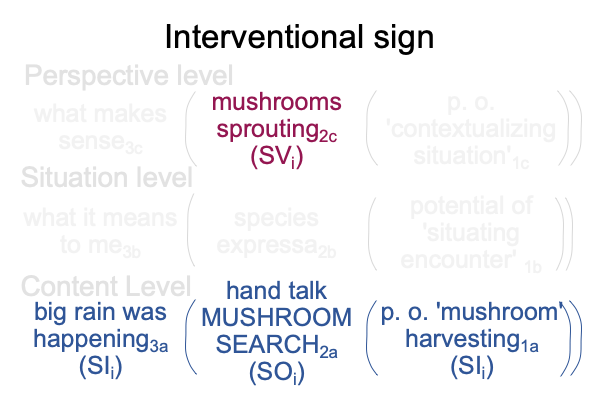
0131 By Dennett’s account, my hand talk words constitute “a meme,” a unit of culture, containing semantic information, a difference that makes a difference, and a piece of know-what worth having.
0132 By a scholastic’s account, my hand talk words constitute the sign-object of an interventional sign-relation (SOi).
I don’t know whether medieval schoolmen successfully formalize the causality inherent in the interventional sign as a relational being. According to Comments on John Deely’s Book (1994) New Beginnings, Latin-writing scholars formalize the specifying and the exemplar sign-causalities. The discovery of the interventional sign, which has all the characteristics of Dennett’s notion of “an inversion of reason”, appears in Comments on Sasha Newell’s Article (2018) “The Affectiveness of Symbols”. Both commentaries are available at smashwords and other e-book venues.
0133 Whatever the accounting, my intervention sign initiates a specifying sign, leading to a wonderful mushroom harvest and contributing to our team (and our band’s) reproductive success.
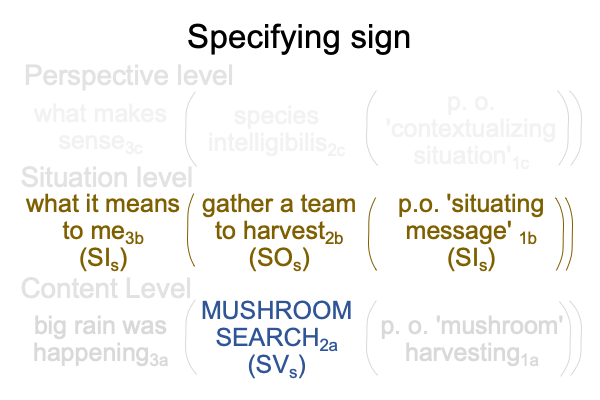
0134 What is this “inversion of reason” business?
The interventional sign-relation inverts the commonplace notion that the sign-vehicle is visible (and thus, a subject) and the sign-object is mental (and thus, an object).
The specifying sign-relation reverts the inversion back into the commonplace notion.
0135 Both sign-relations intimate an affordance.
In this instance, the two affordances speak with one voice, saying, “Our team can gather many more mushrooms than a single individual. We can gather enough to feed all the other potential (but not, at this weather moment, actualized) teams in the band. Plus, we can dry and hide the rest. Time is short. Get to work!”
0136 Notably, this affordance cannot be articulated using hand talk.
How can one picture or point to “team”, “potential” or “affordance”?
Nonetheless, the affordance includes the potentials within the purely relational structure of the scholastic interscope for how humans think.
Clearly, each member of the team conjures the same relational structure, even though each individual possesses a different brain.
Only one more step is required to answer the question, “What is a meme?”

